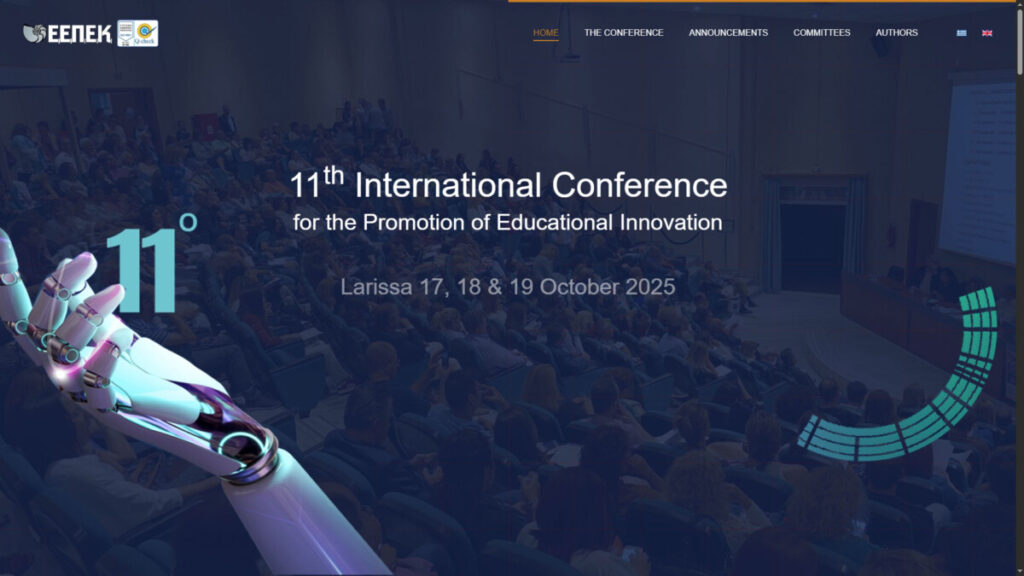Larissa, Greece — The future of science education took center stage at the 11th International Conference for the Promotion of Educational Innovation in Larissa, as Polytech SA, official Sponsor of the conference, officially introduced its latest initiative: the STEM Science Lab. The presentation, delivered by Polytech’s Head of Project Development, Mr. Nikolaos Tzioumakis, on Saturday, October 18, 2025, highlighted the company’s vision for schools to adopt to a Science and Math driven methodology using the already aquired modern STEM kit equipment and turnin it to a data acquisition system for science experiments.
Redefining the School Lab: Using STEM to teach Science and Math
Mr. Tzioumakis’s presentation focused on how the STEM Science Lab is a unique way for schools to use powerfull STEM equipment such as the S1 and S2 STEM Kits (recently aquired by the majority of the Greek public schools) in modern Science and Math teaching, bridging the gap between traditional science curricula and the hands-on, interdisciplinary approach of modern STEM learning. The innovation provides schools with the necessary tools and instructional framework to transform their conventional science rooms into dynamic, problem-solving environments.
“The goal is simple: to expand the STEM approach from focusing now mainly into Technology and Engineering, to teaching Math and Science” stated Mr. Tzioumakis. “The STEM Science Lab is not just new equipment; it’s a complete shift in pedagogy that encourages critical thinking, collaboration, and practical application of scientific principles.”
The initiative is designed to be a flexible and comprehensive solution, allowing educators to seamlessly incorporate engineering design challenges, coding, and data analysis into classic biology, chemistry, and physics experiments.

A Platform for Innovation and Collaboration
The International Conference, held from October 17 to 19, 2025, served as an ideal platform for Polytech’s announcement, underscoring the academic and scientific rigor behind the new product. The event was a massive collaborative effort, organized by the Scientific Association for the Promotion of Educational Innovation (E.E.P.E.K.) in partnership with a distinguished roster of academic institutions.
The collaborating universities included the University of Thessaly, the National Kapodistrian University of Athens, the University of Peloponnese, the University of Macedonia, the University of Patras, the University of Crete, the Democritus University of Thrace, the Université Paris 8 (Liage Lab), and the Open University of Cyprus.
Strong Institutional Support
The significance of the conference—and by extension, the STEM Science Lab’s debut—was further amplified by its powerful network of supporters and co-organizers. Support came from the French Institute of Larissa – the French Embassy in Greece, the Greek Physicists Union, the Panhellenic Association of Graduates of Physical Education of Larissa, the Regional Directorate of Primary and Secondary education of Thessaly, and the English Teachers Association of Larissa.
The event also benefited from the co-organisational efforts of the Regional Government of Thessaly and the Municipality of Larissa, highlighting the initiative’s alignment with broader regional development and educational goals.
Polytech SA’s STEM Science Lab is now poised to become a key player in the ongoing modernization of Greek education, offering a practical and integrated path for schools to embrace the essential skills of the 21st century. The company’s focus on the school environment promises to make high-quality, project-based STEM education accessible to a wider range of students.
